If you love camping without utility hookups and want to experience real freedom, boondocking might be your style. I’ve spent plenty of nights in remote places, away from noisy campgrounds and full-service RV parks. These trips are super rewarding, but they take a little extra planning, especially when it comes to packing for extended stays.
A solid checklist keeps you prepped for anything, whether you’re off-grid for a few days or a few weeks. Here’s the packing approach I use to keep my boondocking adventures smooth and stress-free.
Why Packing Right Makes Extended Boondocking a Breeze
Boondocking, also called dry camping, is camping off-grid without the usual electricity, water, or sewer hookups. It’s all about self-sufficiency, and that means bringing everything you’ll need for daily living.
The right gear isn’t just about comfort; it’s really important for safety and managing resources too. If you want to stay out longer and enjoy those wide open spaces, thinking ahead about supplies can make or break your trip.
I’ve learned a lot from both minor slip-ups and full-on packing fails. Forgetting to pack water jugs or running out of propane on day two can quickly turn an awesome spot into a rush to find the nearest civilization. Careful research helps you make informed decisions for your particular trip, whether you’re headed for the mountains, the desert, or the forest.
Core Essentials: What You Need for Survival and Comfort
Packing for survival is always the first step. Think of these items as the basics you shouldn’t skip:
- Water supply: I bring at least one gallon per person, per day, and always have extra for washing, pets, and emergencies. Collapsible jugs and a water filter are really handy for extending your stay.
- Food planning: Nonperishables like canned goods, pasta, rice, and trail snacks keep the menu simple. I use a well-packed cooler or portable fridge for fresh stuff, but rely on shelf-stable foods for longer trips.
- Cooking gear: My portable stove or grill, propane tanks, basic pots, pans, and utensils all go in a single storage tote. Matches, fire starters, and a small cutting board never leave my setup.
- Emergency kit: A proper first aid kit, headlamps, battery-powered lanterns, and extra batteries always go with me. I usually include a map, compass, and a basic tool kit, too.
Power Solutions for Going Off-Grid
One of the most common worries with boondocking is running out of power. Solar panels make a huge difference, topping up batteries for lights, fans, and charging devices. I always bring:
- Solar setup: A suitcase or fixed solar panel plus a portable battery bank keeps my essentials running. If you’re using sensitive electronics, a pure sine wave inverter is a good idea.
- Generator (optional): On longer trips, I use a small, quiet inverter generator for things solar won’t handle. Remember to bring extra fuel and store it safely away from your camp area.
- LED Lighting: LED string lights and lanterns are super efficient. I make sure to have plenty stashed around my RV and outdoor setup.
Don’t forget charging cables for every device, and check that you have spare fuses and adapters just in case. For me, reliable lighting and power make evenings a lot more relaxing and keep me safe if something goes wrong. If you like a little background buzz, a solar-powered fan can help with stuffy nights.
Managing Water, Waste, and Hygiene Off-Grid
Limited water and waste storage are real challenges. Here’s how I keep things manageable:
- Water jugs: Stackable, collapsible water containers are awesome for carrying and storing extra water. I use a dedicated jug for drinking and another for washing.
- Portable toilet: Even if your RV has a built-in toilet, a cassette or portable backup is smart for emergencies or larger groups. I pack a few extra trash bags and deodorizing tablets, too.
- Bathing: I use camp showers, rinse off with solar shower bags, or stick to quick wipe downs with body wipes if it’s a short stay. Biodegradable soap keeps things eco-friendly.
- Gray water management: I always carry a folding basin for dishwashing and use strainers to keep food particles out of the water. Dumping gray water only in approved spots follows Leave No Trace ethics.
Tools and Gear for Boondocking Troubleshooting
Remote spots come with unexpected challenges. Packing some basic tools and maintenance items can save your trip:
- Multitool and toolkit: My small socket set, pliers, screwdrivers, and wrenches have fixed everything from loose steps to leaky hoses.
- Duct tape and zip ties: I throw these everywhere, in the RV, the truck, and the gear box. They’re really useful for quick fixes.
- Leveling blocks and chocks: Uneven ground is common, so I pack more blocks than I think I’ll need. Tire chocks keep things steady.
- Shovel and hatchet: Great for leveling ground, handling campfires, or clearing rocks and debris from the site.
An air compressor and spare tire go on every remote trip. Punctures are no joke when you’re hours from a service station. Keeping your rig and tow vehicle prepped is just as important as the camp gear you pack. Bring some basic spare fuses, bulbs, and fluids for your vehicle just to be ready for surprises.
Creature Comforts: Boosting Your Off-Grid Experience
Being comfortable makes long trips way more enjoyable. These supplies always help me get settled for the long haul:
- Outdoor mat and chairs: A weather-resistant mat keeps dust out of my camper, and folding chairs are perfect for relaxing under the stars.
- Portable table: Super handy for cooking, eating, and spreading out gear outside. I also bring a small side table for drinks or books.
- Weather gear: Even in summer, I keep an emergency poncho, a sunshade, and a decent hat nearby. Weather changes fast when you’re off grid, so pack a warm blanket or jacket too.
- Entertainment: Books, board games, podcasts, and downloaded movies fill in slow evenings, especially if the weather keeps you inside. If you play an instrument, pack that too for some evening tunes under the stars.
Safety Equipment and Communication
When you’re far from help, safety goes beyond just first aid. I always pack:
- Weather radio: Battery-operated or crank radios help me stay in the know when storms or wildfire risks pop up.
- Signal devices: Whistles, signal mirrors, and headlamps help if I need to get someone’s attention in an emergency.
- Personal locator beacon (PLB): Great for longer, more remote trips. I use mine for peace of mind if I stray away from roads or cell service.
- Fire extinguisher: I keep one inside my RV and another in the tow vehicle. Fires can happen fast outdoors, so it pays to be ready.
Handheld walkietalkies are a smart add-on if you’re traveling with friends or caravanning. Cell boosters might also help in remote areas with weak signals. A backup paper map is always good in case technology fails.
Extra Packing Tips from My Experience
A few lessons I’ve picked up along the way make packing a lot easier. I label everything and keep smaller stuff organized in clear tubs. Packing cubes are perfect for clothes, especially when space is tight. I carry a printed packing list and do a walk-through the night before departure to double check everything is loaded.
Scout your route and check road conditions, then plan to arrive at your spot well before dark. Setting up camp is way less stressful when you’re not fumbling with a flashlight and missing gear. I always pack a little more food, water, and fuel than I think I’ll need, since running out can quickly cut an adventure short. For longer trips, consider switching things up in your meals and routines to fight boredom.
Frequently Asked Questions
Here are some common questions people ask about packing for extended boondocking trips:
Question: How much water should I bring for a week of boondocking?
Answer: Plan for at least one gallon of water per person each day, plus extra for washing, cooking, and pets. I bring extra containers just to be safe.
Question: Do I need a generator, or are solar panels enough?
Answer: For light power use, solar panels are usually enough, but a small generator is a good backup for longer cloudy periods or when you need to recharge batteries quickly. I travel with both for longer trips.
Question: What’s the best way to stay clean without full hookups?
Answer: I use solar showers, biodegradable wipes, and plan for quick sponge baths. Having a routine saves water and keeps things fresh.
Question: How do I safely manage waste and trash?
Answer: I pack sealable trash bags, use a portable toilet if needed, and follow local guidelines for disposing of waste and gray water. Leaving no trace helps keep wild spots beautiful.
Question: How can I improve comfort on long stays?
Answer: Bringing favorite foods, pillows, and outdoor gear helps a lot. Staying organized and having a cozy camp setup makes everything feel more like home. Bring little extras like a hammock or outdoor lights if you’ve got space.
Big adventures usually come down to the small details. Prepping with a thoughtful packing list keeps your boondocking trips fun and worry-free, letting you soak up the freedom and beauty of life off-grid. If you go with friends or family, planning out shared gear ahead of time keeps everyone happy, and it reduces how much you need to pack individually.
If you want more RV living tips or are curious about running an online business from the road, check out more here. Got packing tips or questions? Drop them in the comments before you explore the rest of our site. Wishing you smooth travels and unforgettable off-grid memories!

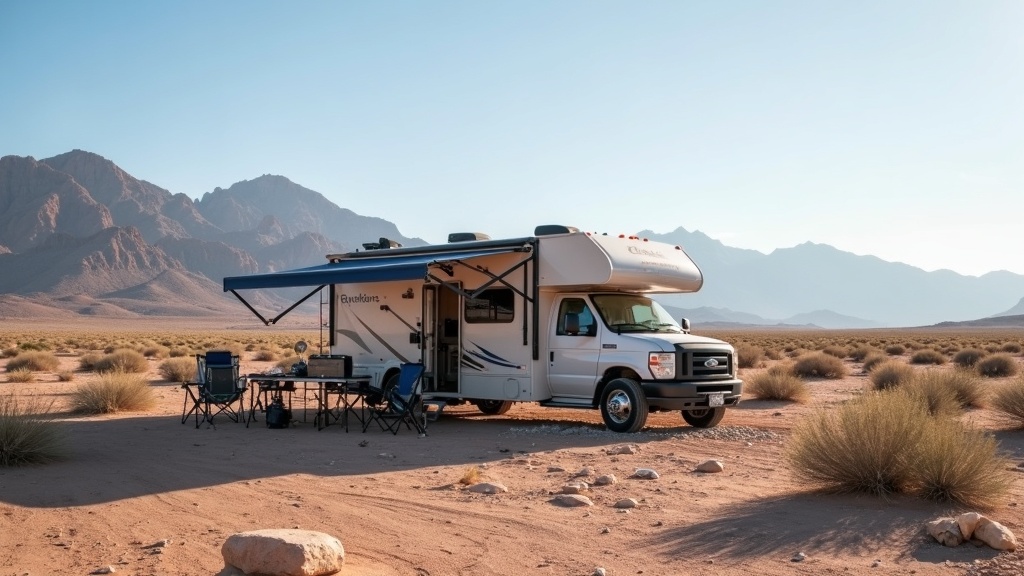
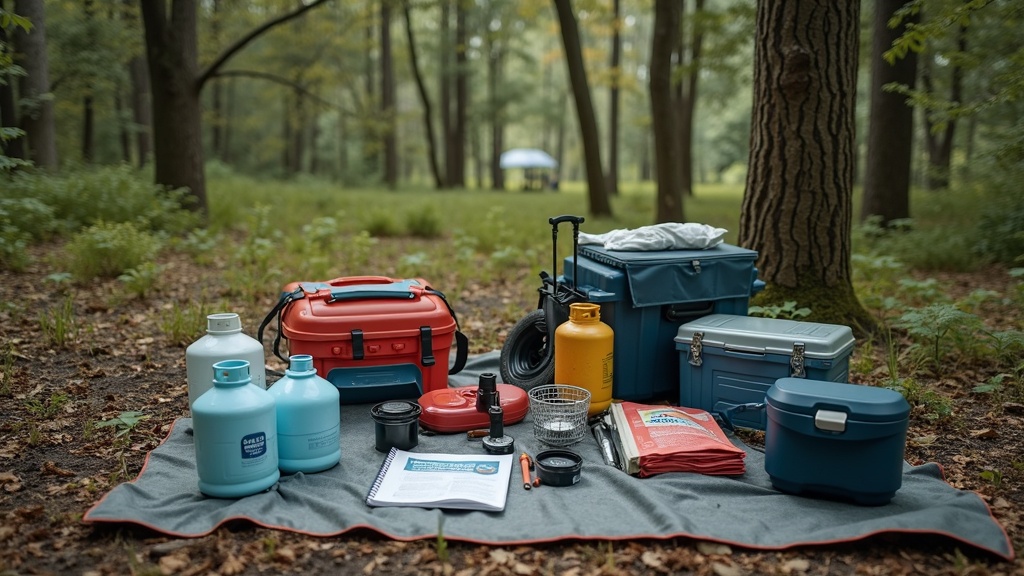
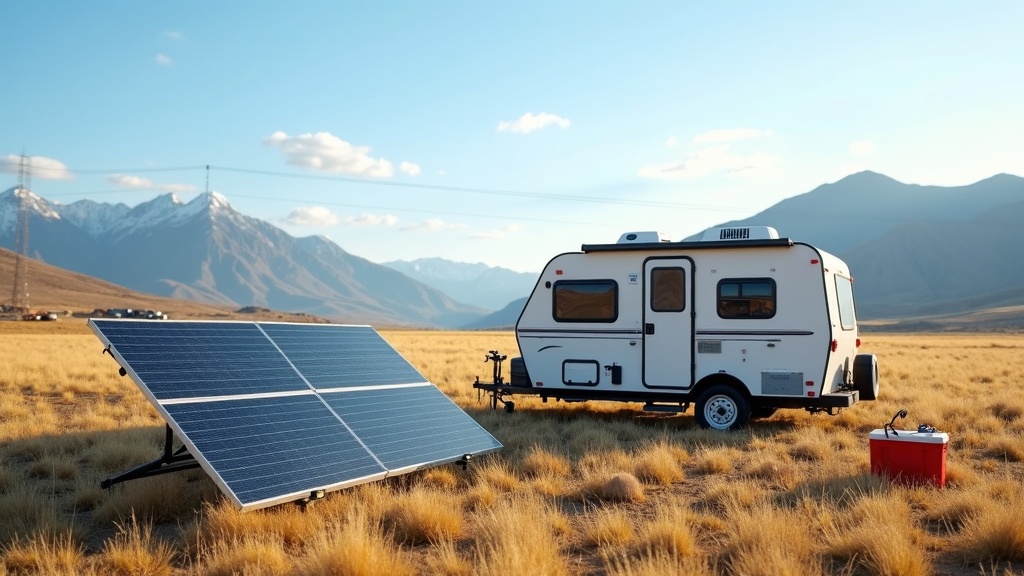
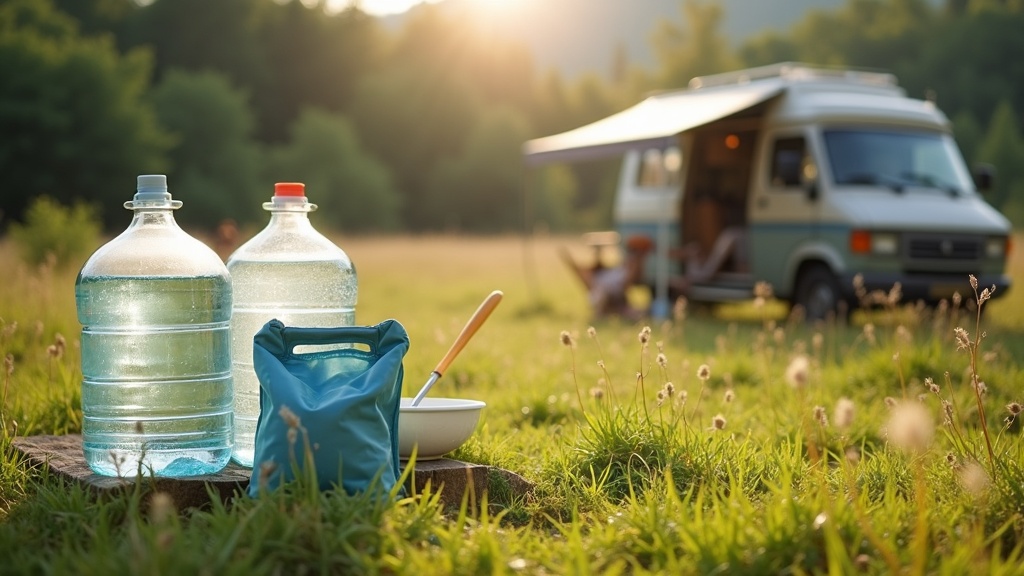
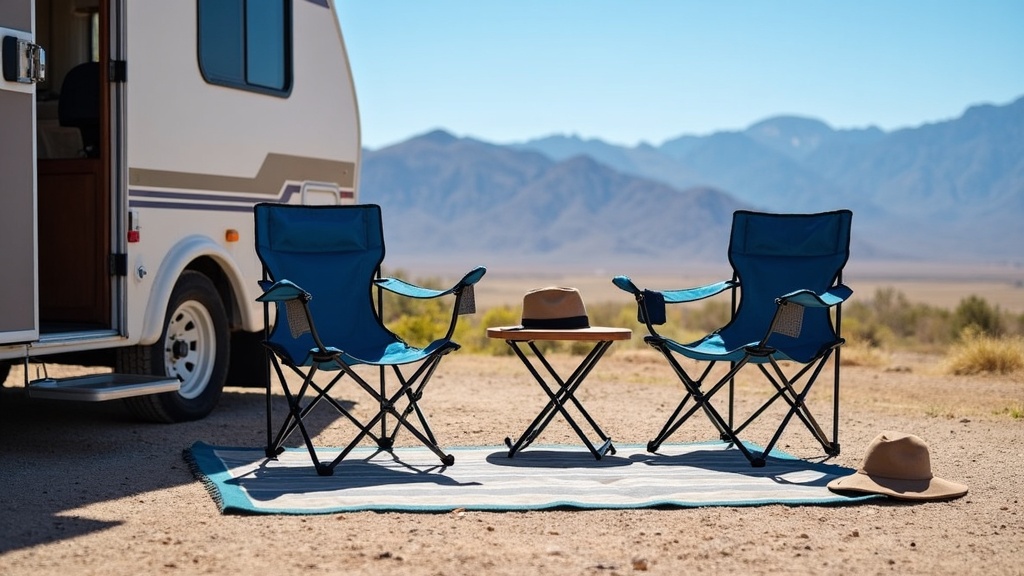
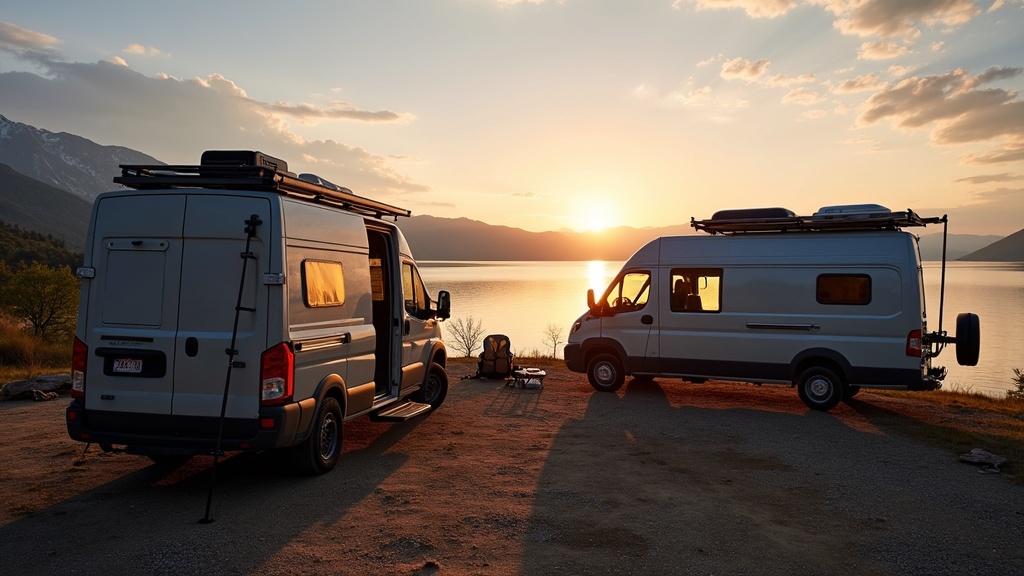

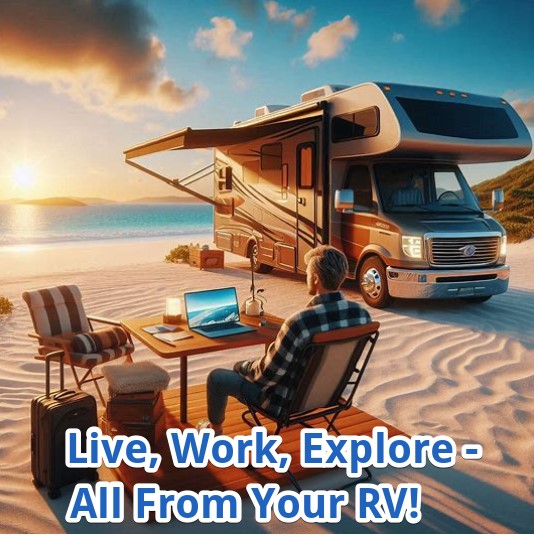
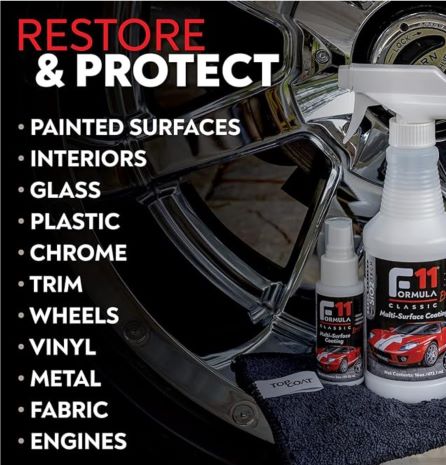
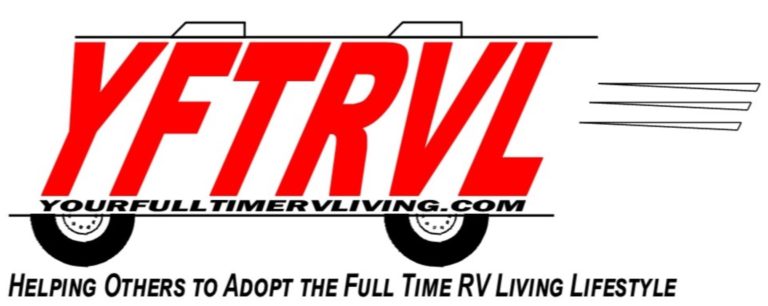



Recent Comments